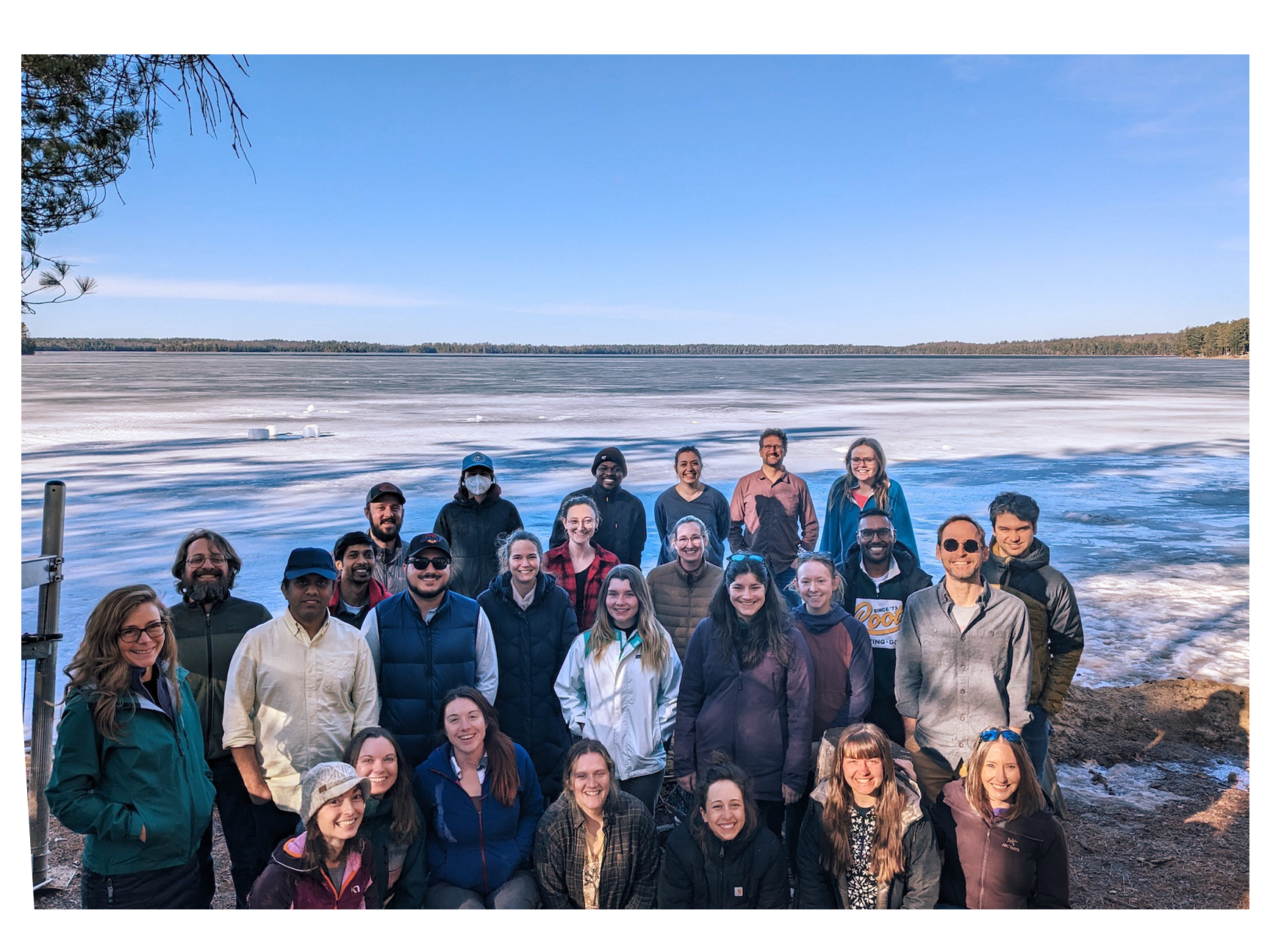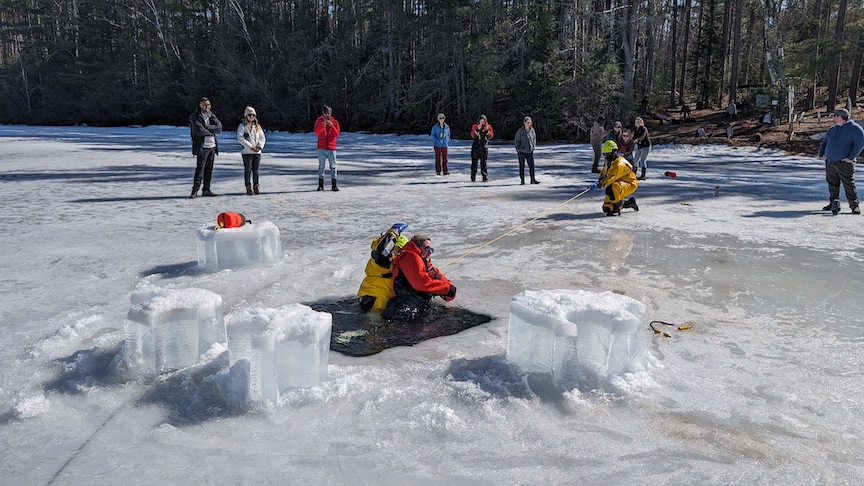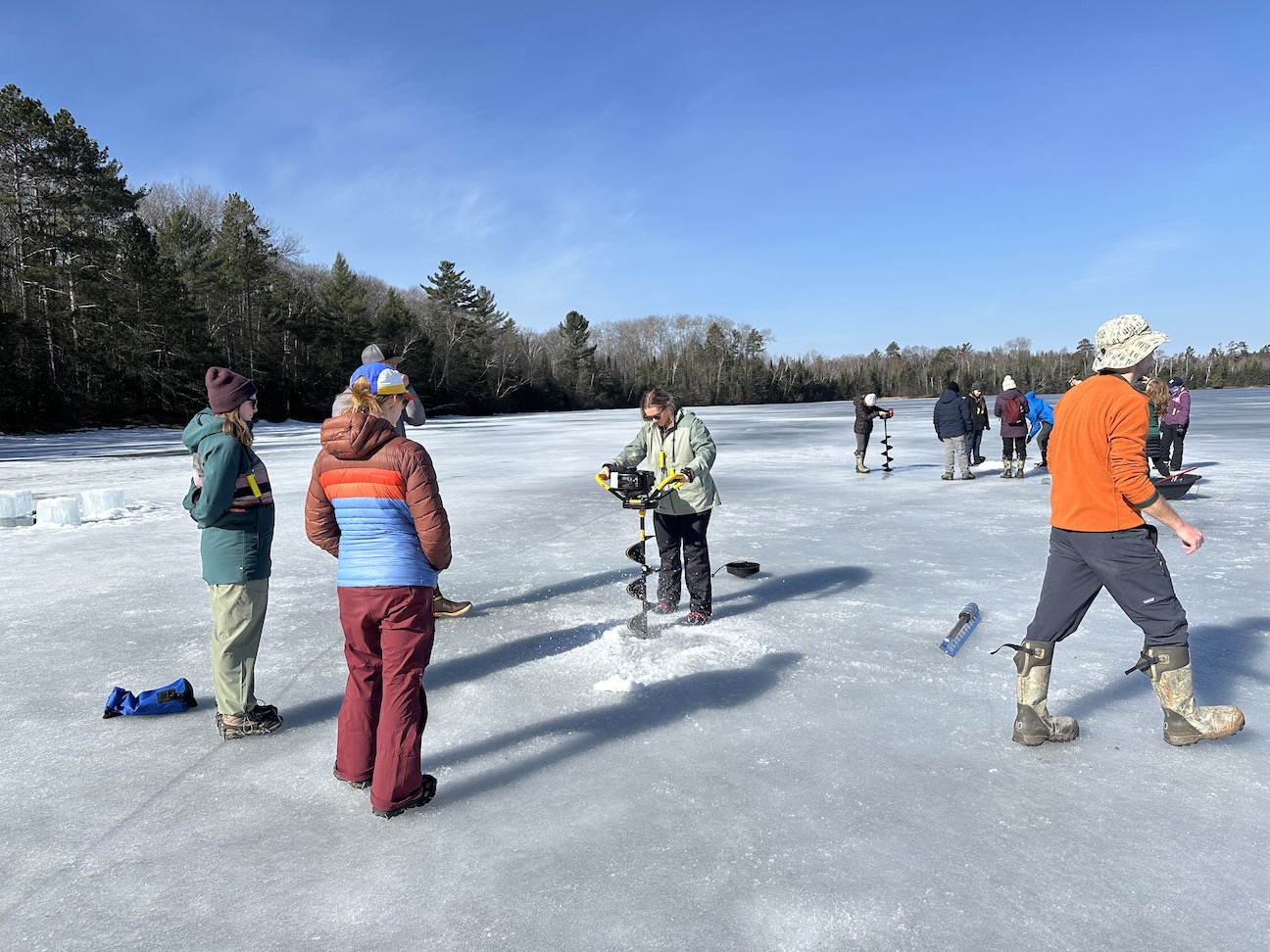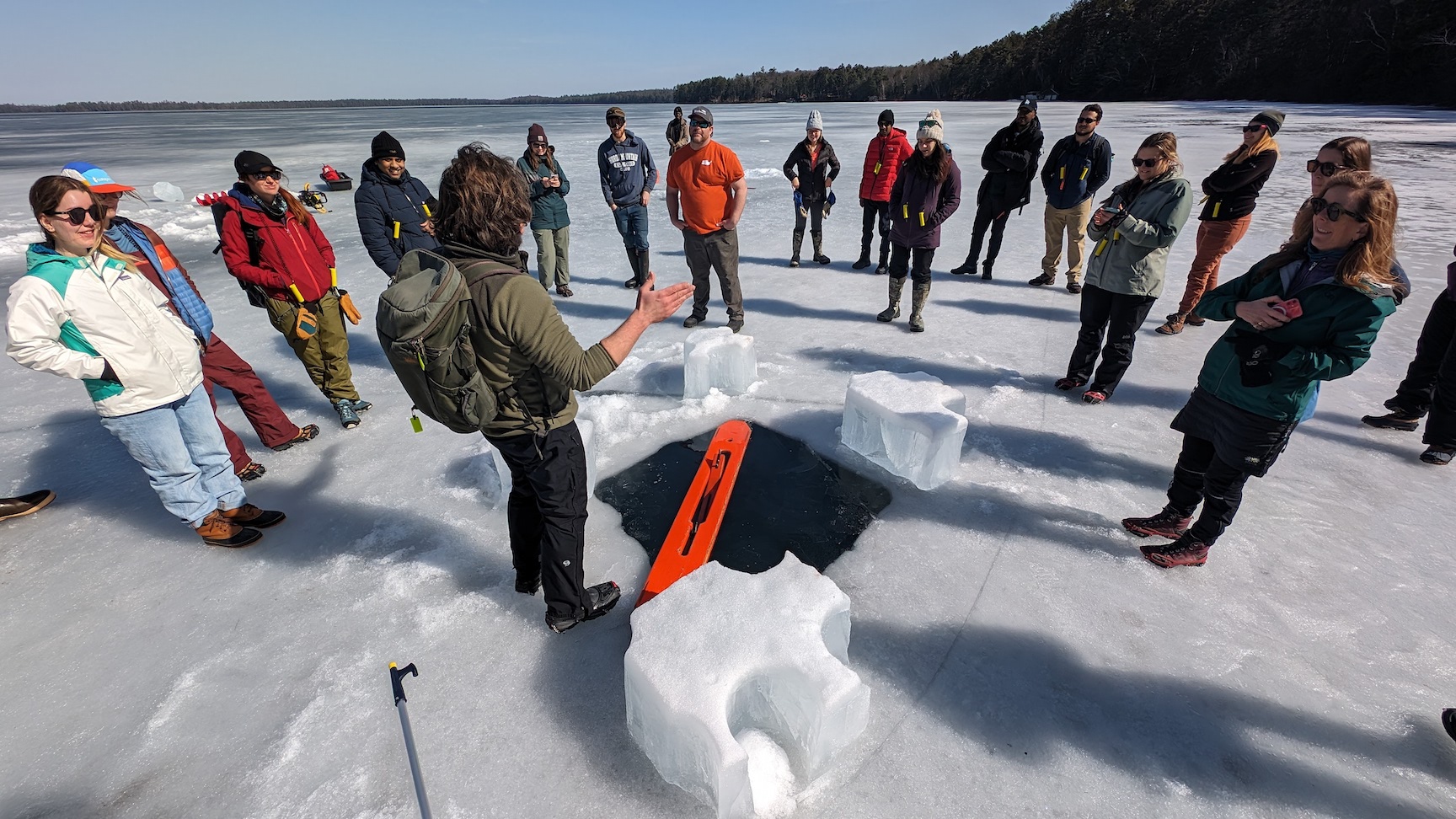Winter School 2024
March 10th-15th, 2024
Winter lake ice presents unique challenges to limnological research and science outreach. These challenges have slowed progress in understanding the responses of aquatic ecosystems to rapidly changing conditions associated with climate change. Unfortunately, few aquatic scientistsare trained for the unique challenges of limnological sampling on frozen lakes, including ice safety, operating standard limnological gear in subzero temperatures, collecting samples from under snow and ice cover, or even dressing for the cold, windy, and wet conditions winter limnologists routinely encounter.
 In March, 2024, early-career limnologists gathered at Trout Lake Station in Wisconsin with five researchers experienced in winter limnology for a comprehensive Winter Limnology training workshop. Participants had a fully hands-on experience in conducting winter field research, and contributed to discussions about team science and science communication and outreach. Participants included graduate students, postdocs, faculty, and practicing conservation scientists from the US and Canada.
In March, 2024, early-career limnologists gathered at Trout Lake Station in Wisconsin with five researchers experienced in winter limnology for a comprehensive Winter Limnology training workshop. Participants had a fully hands-on experience in conducting winter field research, and contributed to discussions about team science and science communication and outreach. Participants included graduate students, postdocs, faculty, and practicing conservation scientists from the US and Canada.
The workshop began with a full day of ice safety training led by professional ice safety trainers who normally work with first responders. Participants learned how to assess the relative safety of ice conditions, how to avoid accidents on the ice, how to help others in distress, and how to rescue themselves. It was a learning experience for everyone, including the ice-safety instructors who learned the word “limnology”!

Participants practiced with augers and ice saws to create holes for sampling, and set up ice tents for warmth. They then brainstormed research questions that might be addressed by two days of intensive sampling during our workshop, and set up the training to gather appropriate data. Participants worked with the workshop organizers to determine the safety of ice conditions at Trout Lake, and then practiced deploying standard sensors under ice as well as collecting samples for water chemistry and plankton counts. Participants also learned the technique for setting a line under ice, along which one could set a gillnet or set up bottles to incubate under undisturbed ice. Unable to resist the lure of cold water and the satisfaction of self-rescue, several participants jumped back into the lake in only a PFD and their clothes to experience the shock of falling through the ice and pulling themselves to safety with their ice picks, and a crew on ice ready to assist.

A day was spent compiling and analyzing the data that were collected. Participants worked together under open science principles, and intend to develop formalized norms for collaboration, data sharing, and authorship as they continue to collaborate.
Organizers hope to be able to offer this training again in future winters, and look forward to our trainees contributing to winter knowledge in our project and beyond!



This workshop was supported by NSF award # 2306885 “Advancing a comprehensive model of year-round ecosystem function in seasonally frozen lakes through networked science”.